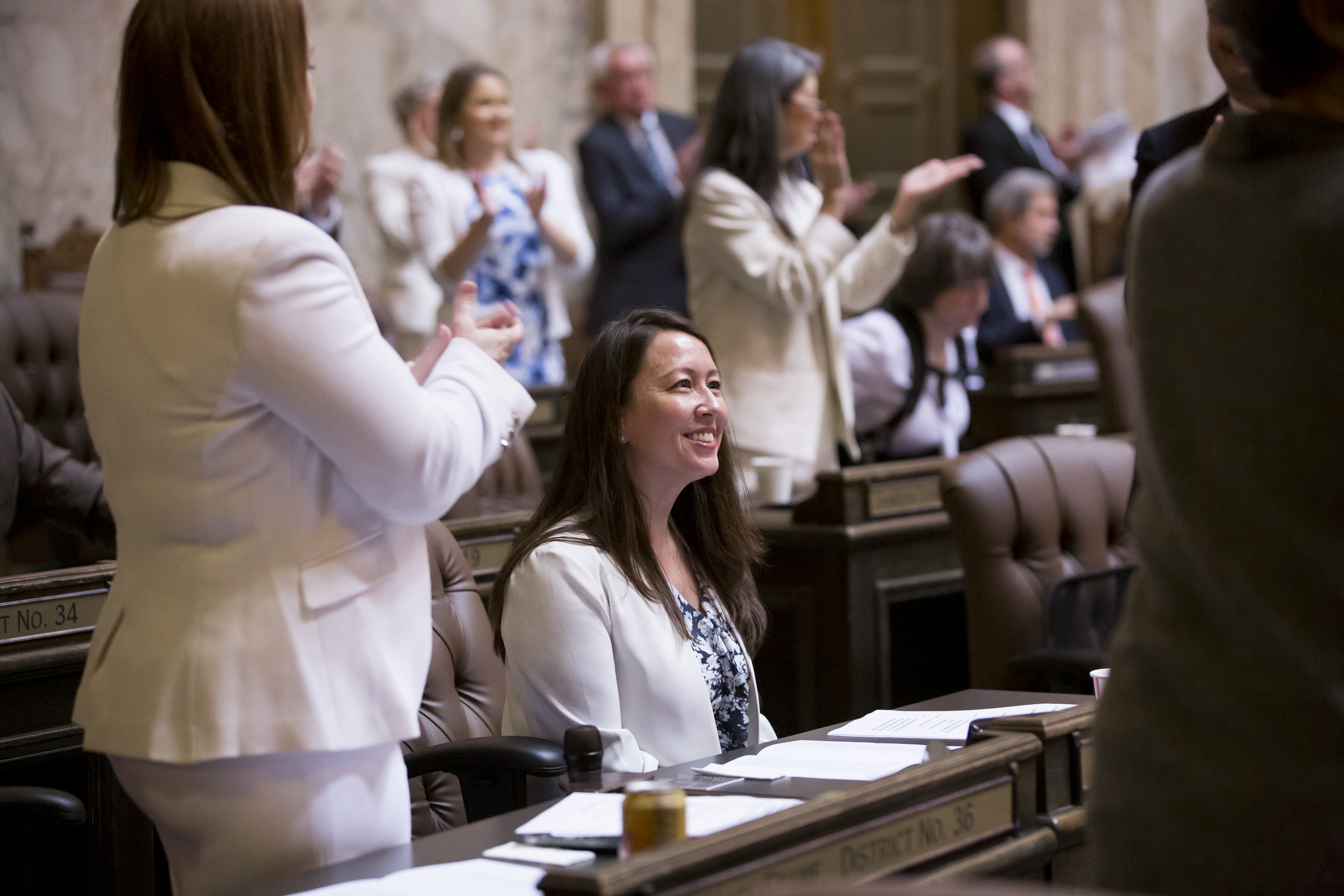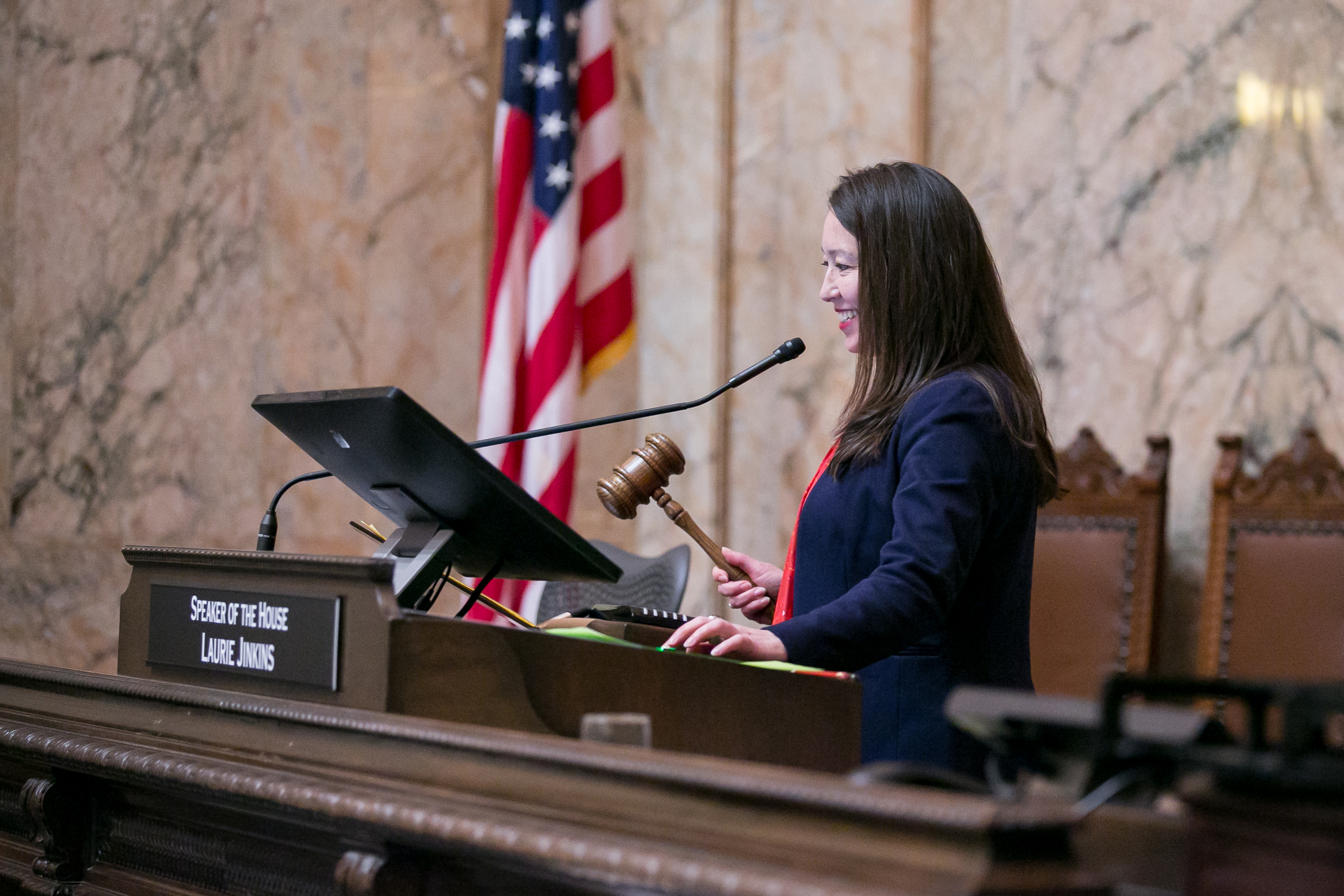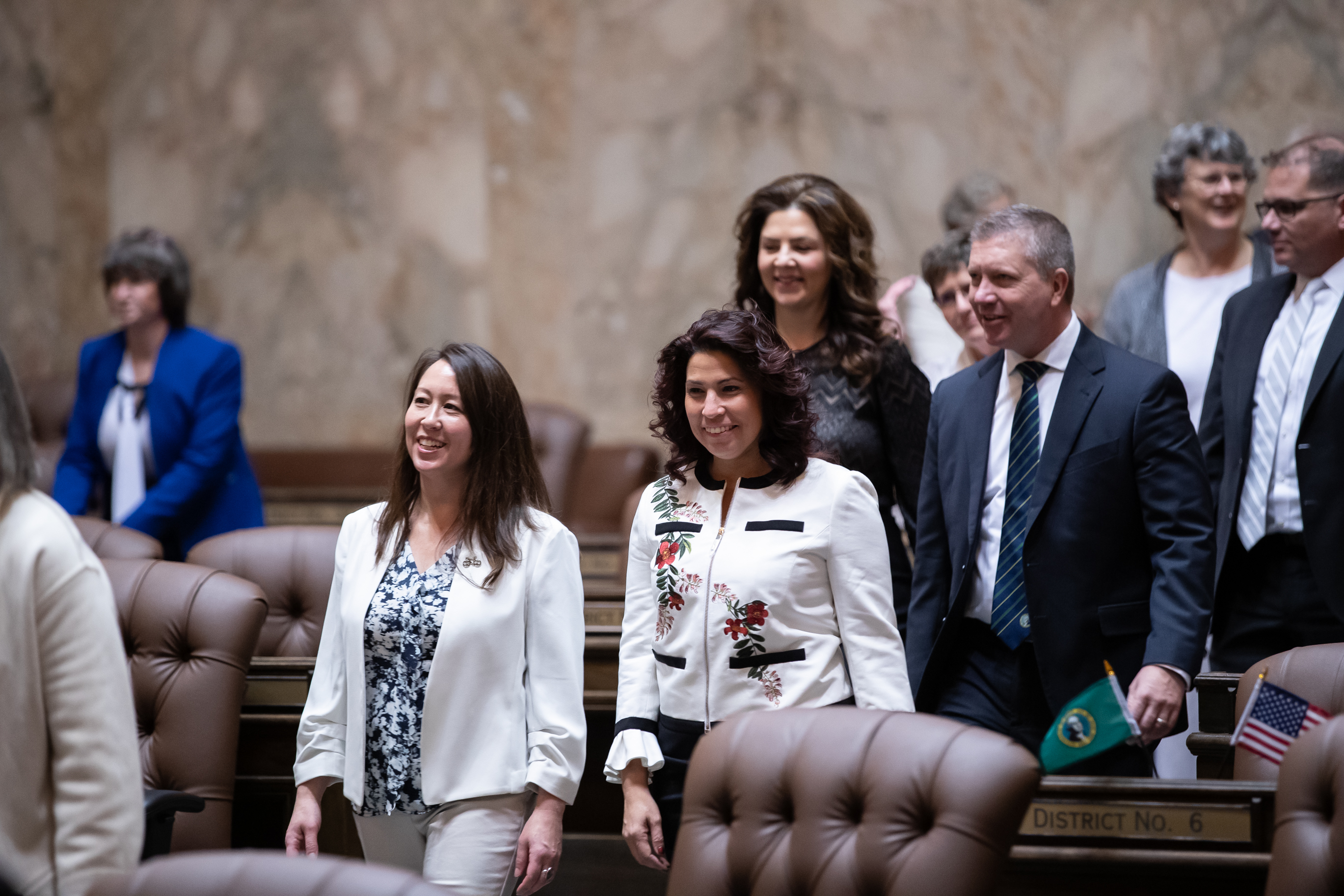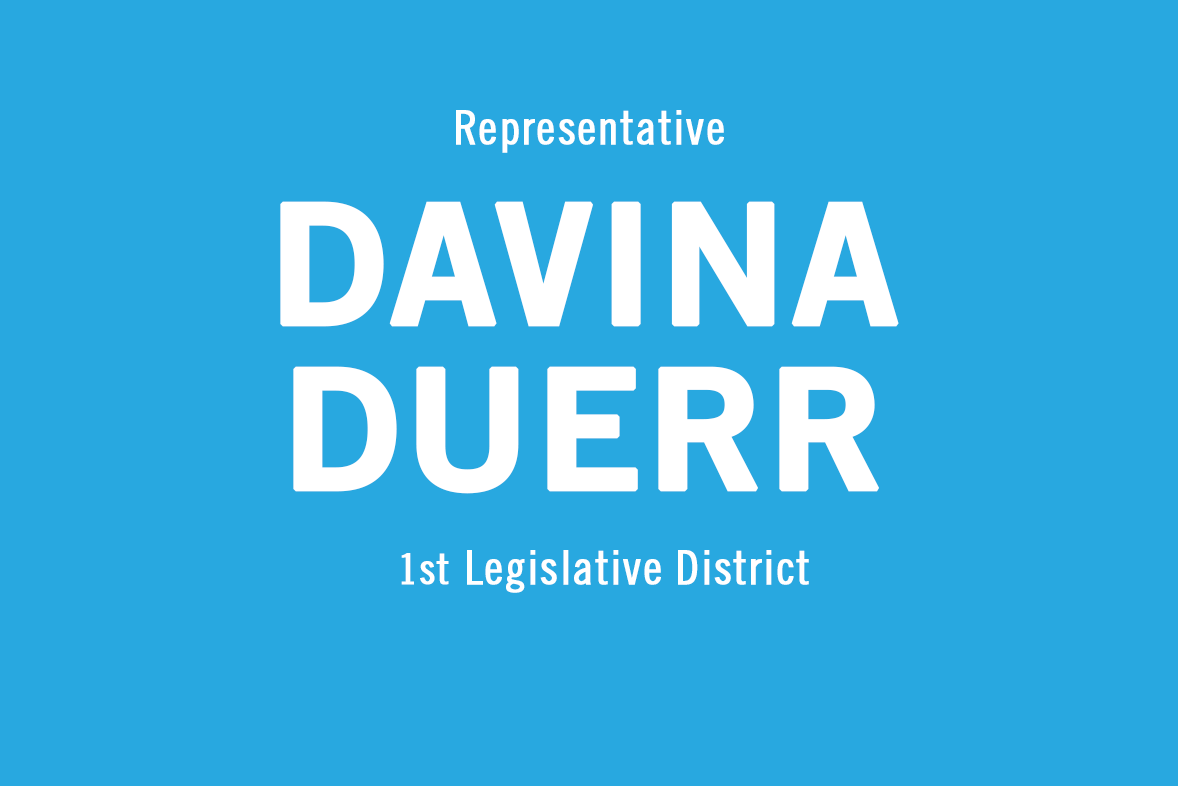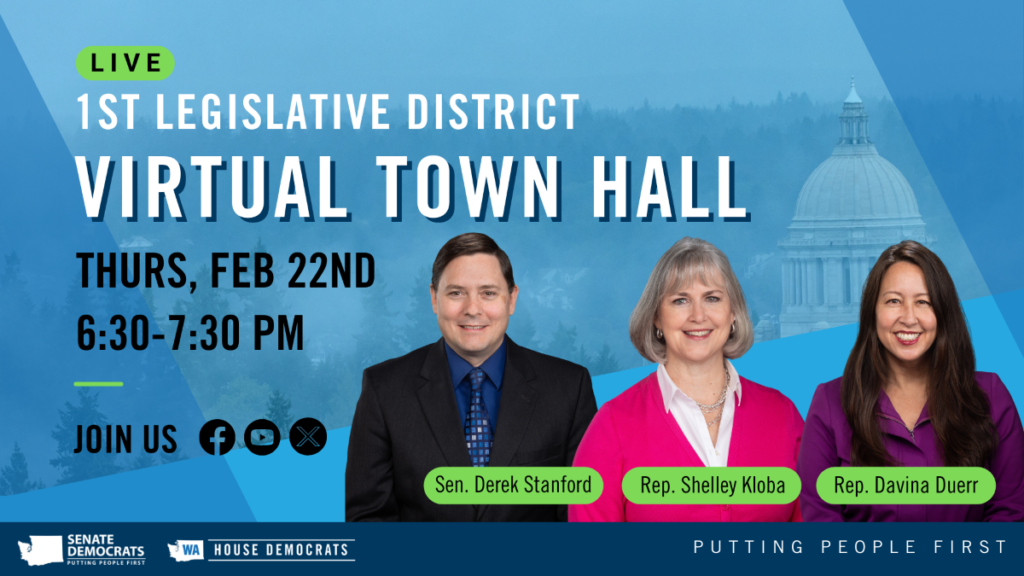Dear neighbors,
You’re invited to two town halls, one virtual and one in person.
The first town hall is 6:30 p.m. to 7:30 p.m. on Feb. 22, and it’s virtual—so you can participate from your phone or computer.
The second town hall is in person, from 6 p.m. to 7:30 p.m. on April 30 at Mobius Hall, Cascadia College, Bothell.
Hearing directly from you is important to me. I look forward to your questions and ideas!
Legislative update
Five of the bills I wrote passed the House and are now being considered in the Senate.
All five have hearings scheduled, which is a great sign. Any bill that doesn’t get a hearing definitely won’t pass the committee.
Affordable housing (House Bill 2071)—This legislation makes it easier and cheaper to build multi-family homes, up to six-plexes. We desperately need to build more affordable housing, and this is one change that could make a real difference for families.
Buy Clean, Buy Fair (House Bill 1282)—Buildings are actually the second-leading cause of greenhouse gases after transportation. This bill collects data on embodied carbon with building materials used in our state, which is the first step toward a solution.
Energy labeling (House Bill 1433)—When you buy a new car, there’s a sticker on the window with the price, features, and miles per gallon. Why not have the same kind of label for on homes for sale? It’s probably the biggest purchase of your life, and the yearly utility costs are good to know. This legislation allows cities to require that information be available at sale.
King County exemption (House Bill 2044)—Local governments around the state have had the power to use levy revenue to support essential services. Yet for years, local governments in King County were excluded by state law. This legislation removes that exclusion and restores flexibility with voter-approved levies.
Refrigerant gases (House Bill 2401)— Carbon dioxide is the most common greenhouse gas. But there are common chemicals far, far worse than carbon dioxide. The fluorinated refrigerant gases used in your air conditioners, heat pumps, and supermarkets have 2,000 to 4,000 times more global warming potential than carbon dioxide. This legislation will help recover, reclaim, and re-use these gases instead of venting them into our atmosphere.
Keep in touch
Please contact me if you have ideas, comments, or questions.
I hope to see you at one of the town hall meetings!
